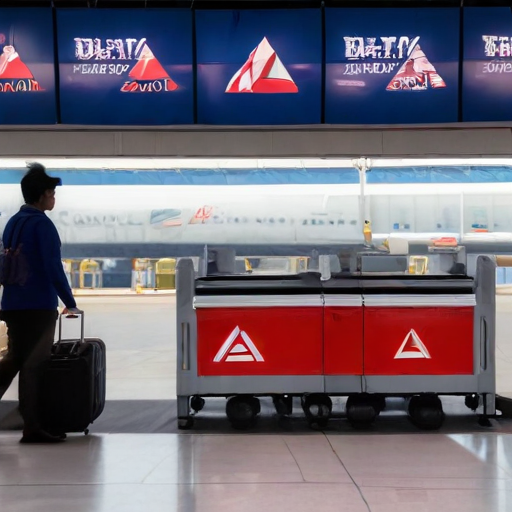Delta Air Lines faced significant operational challenges on Monday, canceling hundreds of flights as the airline continued to recover from a severe global software outage. This incident had already disrupted thousands of journeys over the weekend.
On Sunday alone, Delta canceled approximately 1,300 flights and delayed about 1,600, according to FlightAware. The airline had previously seen more than 3,500 flights canceled between Friday and Saturday due to the software issue. By Monday morning, Delta had canceled 626 flights and experienced 144 delays, which accounted for around 20% of its planned operations. In comparison, American Airlines managed to cancel only 38 flights and delay 155, roughly 5% of its schedule.
The problems arose from a flawed software update issued by cybersecurity firm CrowdStrike late Thursday, which inadvertently affected Microsoft’s Windows operating systems. This led to widespread access issues, with users encountering the notorious “Blue Screen of Death.” The disruption impacted various industries, including healthcare, retail, and finance, but airlines and airports faced some of the most severe consequences, with over 46,000 flights delayed and more than 5,000 canceled on Friday alone.
Delta’s CEO, Ed Bastian, expressed regret over the situation, emphasizing that canceling flights is always a last resort and acknowledging the difficulties faced by affected travelers. He assured customers that Delta is committed to connecting the world, stating the airline understands how frustrating travel disruptions can be. To assist passengers, Delta has issued a travel waiver allowing free changes, alongside meal vouchers, hotel accommodations, and transportation.
In response to the widespread complaints about Delta’s handling of the disruptions, Secretary of Transportation Pete Buttigieg emphasized the necessity for the airline to provide timely refunds, free rebooking, and reimbursement for food and hotel expenses. He called for better customer service, ensuring no one is left stranded at airports or stuck on hold for extended periods.
Despite the unfortunate circumstances, Delta’s response illustrates the airline’s commitment to remedying the situation and supporting customers during these challenging times. This incident may ultimately serve as an opportunity for Delta to improve their systems and deliver better service in the future.
In summary, while Delta Air Lines has faced significant setbacks due to a software failure leading to extensive flight cancellations and delays, their proactive measures and commitment to customer assistance may foster a sense of trust and reliability as they move forward.
